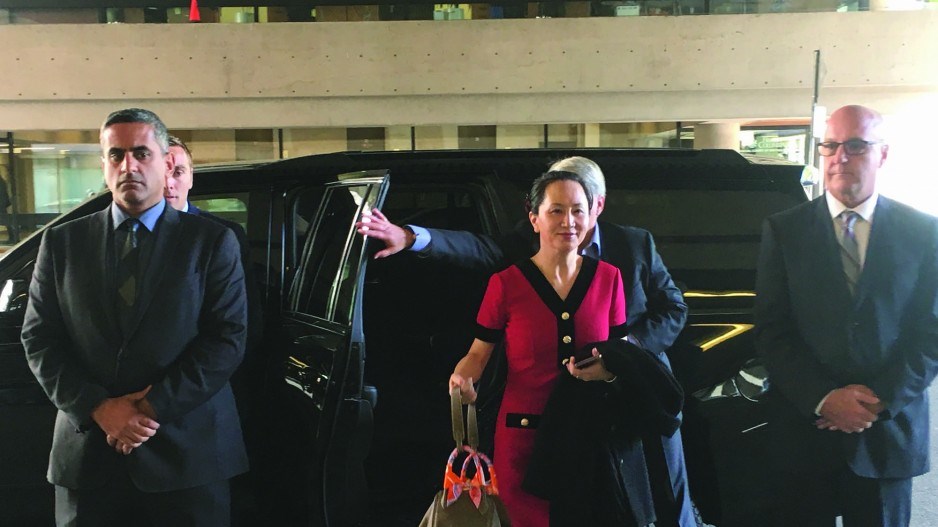The Meng Wanzhou extradition hearings resumed this morning in Vancouver, as the Huawei executive is seeking a full publication ban on new evidence the company secured from Hong Kong.
Defence lawyer Tony Paisana said that the new documents – secured by Huawei in the separate case in Hong Kong involving the Chinese tech giant and British bank HSBC – are “critical” to Meng’s argument that she did not mislead the bank into continuing to lend Huawei funds at the risk of violating U.S. sanctions on Iran.
The U.S. Department of Justice is accusing Meng of fraud as part of its extradition request to Canada. Officials say Meng lied to HSBC at a meeting in 2013, causing the bank to violate U.S.‘s Iran sanctions by continuing to lend to Huawei - whose Skycom subsidiary continued to operate in the Iranian market.
Paisana said the Hong Kong court, in releasing the documents, ordered Huawei to take measures to protect the privacy of parties in the document, including the possible use of a publication ban. As such, Meng is “contractually bound” to seek a complete publication ban on the documents to protect people and businesses mentioned in the new evidence.
He added that a denial of the application may have a “chilling effect” on Huawei and HSBC’s willingness to actively participate in future criminal court processes, which can hurt the Canadian court’s ability to administer proper justice (without the help of evidence that would be available under a full publication ban).
Paisana also noted most of the document’s information on Huawei operations are not related to the Meng case and should not be made public.
In response, Crown attorney John Gibb-Carsley rebuked those claims, noting the Hong Kong court order asked for “reasonable measures” to maintain privacy and included a publication ban as an option. Such a ban is not required by the order, Gibb-Carsley said.
He added that the hearing has operated well with privacy concerns with the redaction of names and portions of past evidence, and a complete ban would be an overreach.
The Crown also noted there is no evidence of the Canadian public interest being harmed by the publication of the information in the document, but ample evidence exists that a ban would damage public interest.
Calling the media the “eyes and ear of the Canadian public,” Gibb-Carsely said while there are certainly times where need to be a publication ban, this isn’t such an instance.
“This application ban is not in the interest of the public and is unnecessary restrictive,” Gibb-Carsley said.
An attorney representing a number of the media conglomerates covering the case also spoke, noting how the current hearing situation did not match previous instances where a media publication ban was warranted.
Associate Chief Justice Heather Holmes has adjourned court for the day without announcing a decision on the application. It is unclear when a decision will be forthcoming, although the court indicated it may be within the week.




